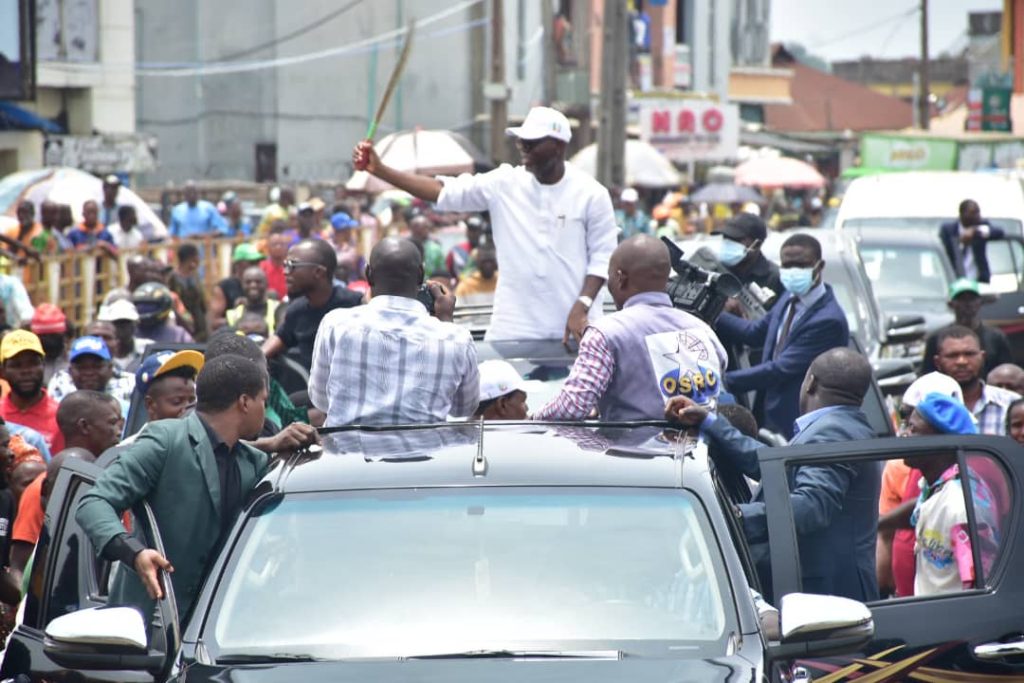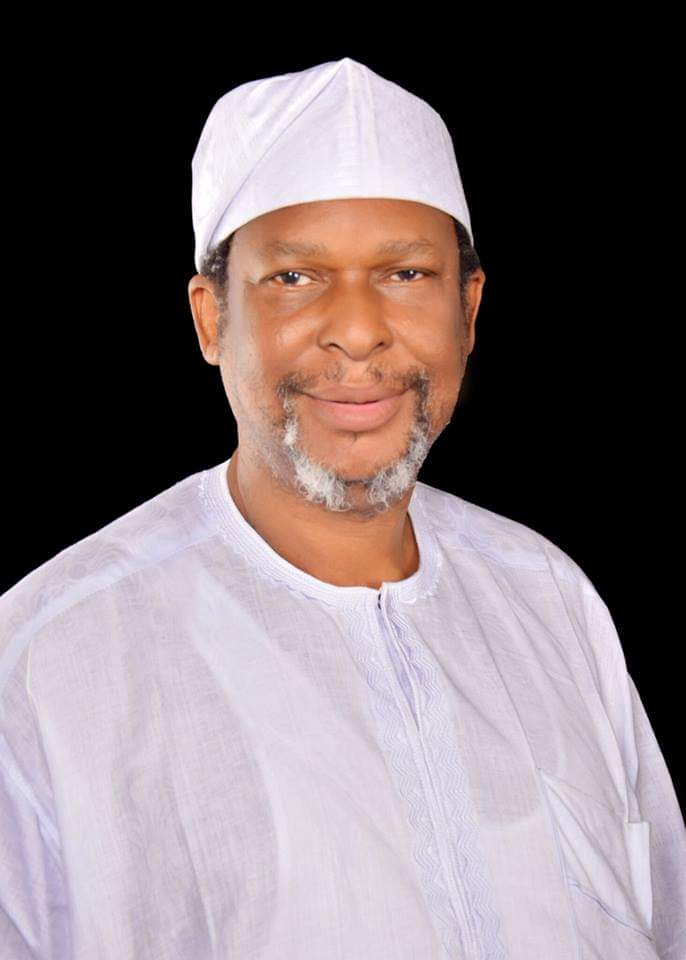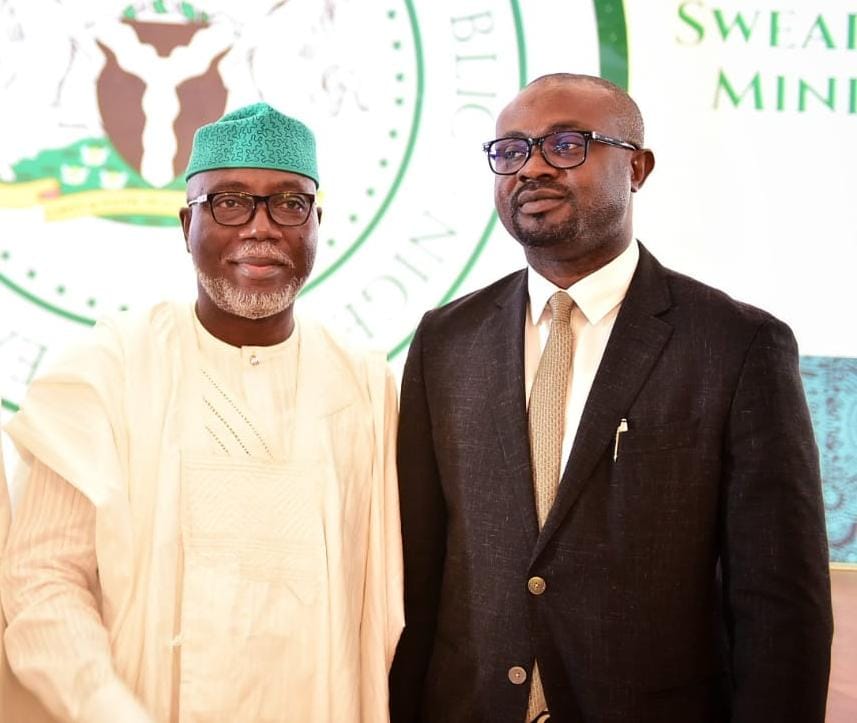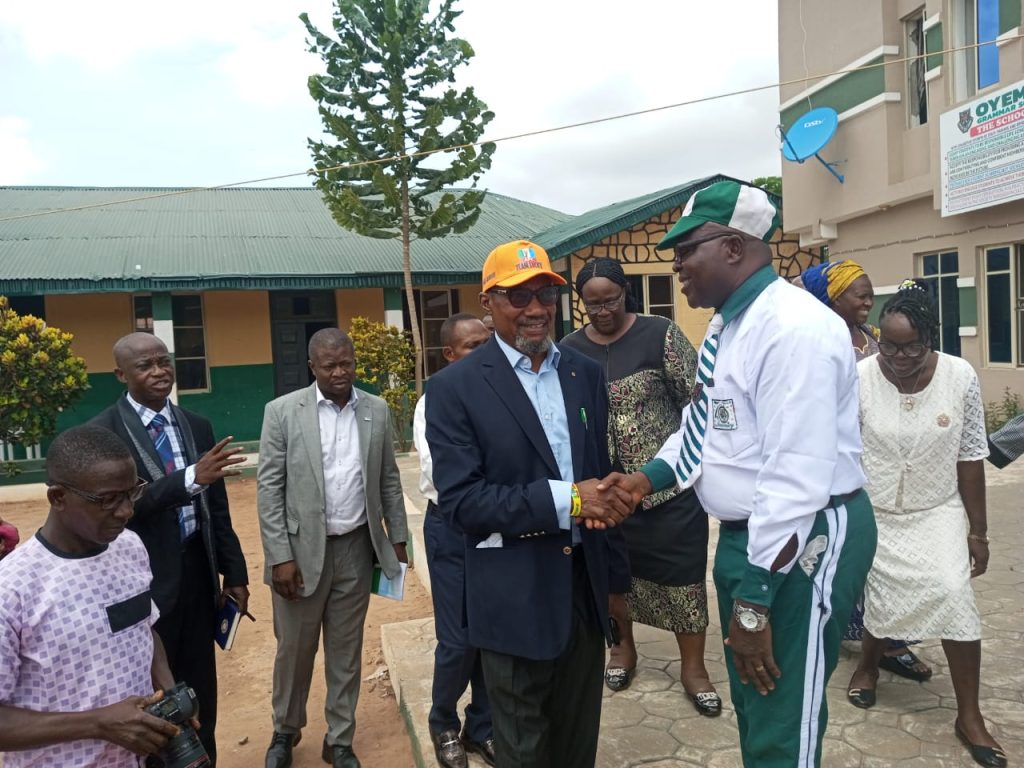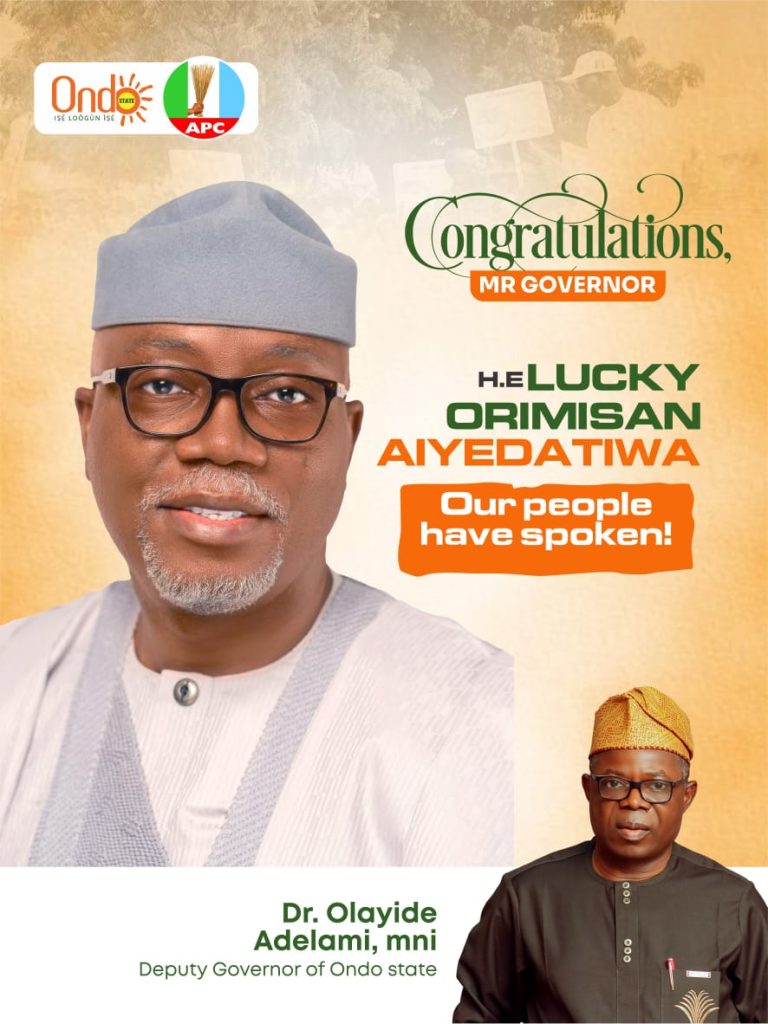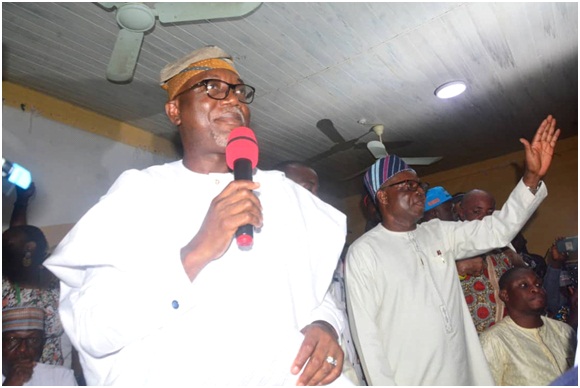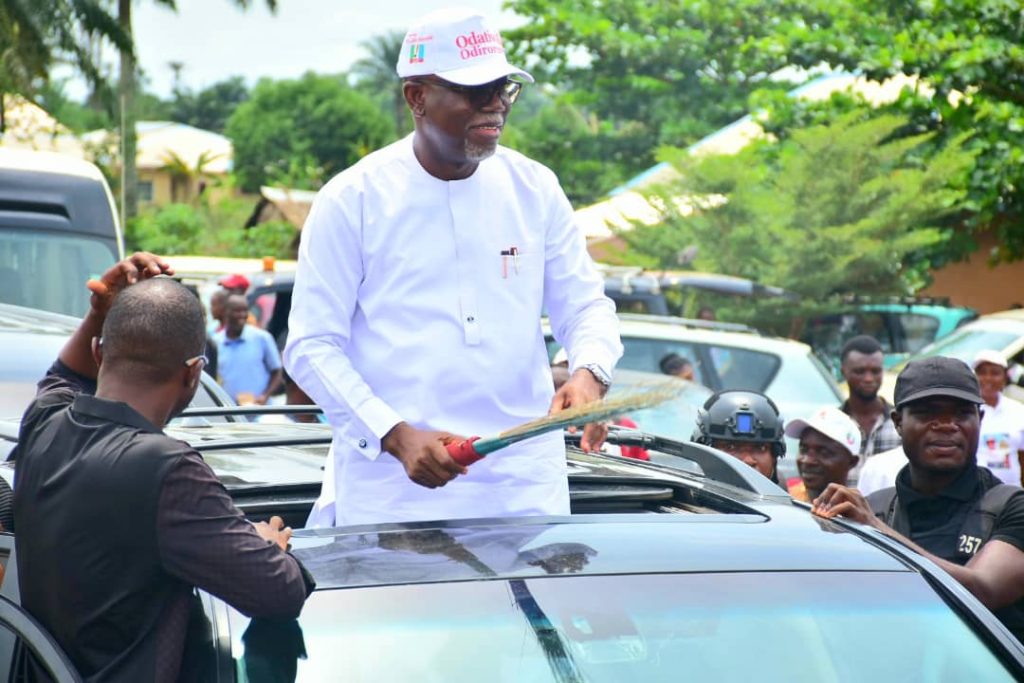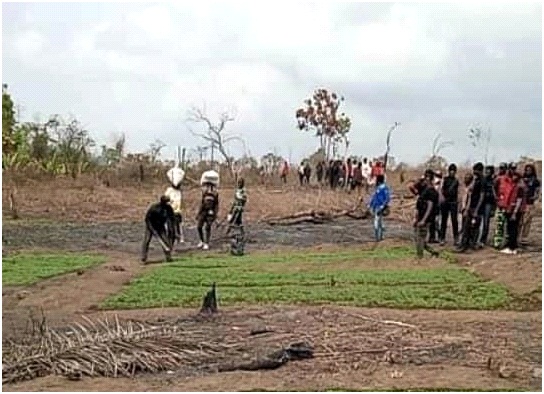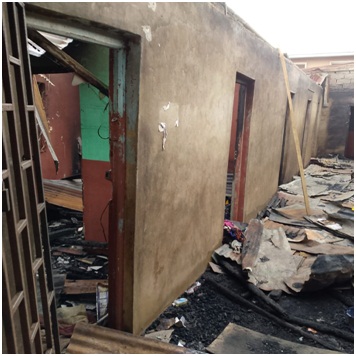Rebuild our tourist centres
By Bayo fasunwon
|
The teachings in Islam has imprinted it upon the heart of every Muslim the desire to leave the shores of their countries, overcome travelling phobia, and visit the Holy Land, Mecca, at least once in their lifetime. While it is a must for Muslims, it is a spiritual experience, based on personal volition by Christians. The journey has three advantages to the pilgrim. In the first instance, it allows to have a feel touch of those things they have read, heard and taught about the religion. Their minds can capture the real picture of their beliefs, thereby enhancing their faith and commitment to worship.
Secondly, travelling gives them the opportunity to meet other believers from all nations of the world. There, relationships that have both political and socio-economic lifetime impacts are developed. This opportunity for networking has implications for themselves and their nations long after the Hajj is completed. Finally, the pilgrims are able to observe the unity in diversity as well as the ongoing developments in Saudi Arabia and Israel, as the case may be. These developments are often copied to build mosques, schools and personal houses by the hajj returnees.
On the economic side, there is a capital flight from Nigeria to the holy land every year. Since the transaction is always in foreign currencies, especially American Dollars, there is always a huge pressure on the foreign currency. This in no small way provokes a high demand, and subsequently affects the exchange rates in the black markets. Unfortunately, many who embark on these spiritual excursions, often do not engage in commerce that would enhance the economic development of Nigeria. A cursory look into the expenditures would reveal a stereotype spending pattern on spiritual materials rather than on merchandise that could promote the nation’s commerce and industry. On the other hand, what Nigeria loses is a gain to the holy lands. The various hotels, food vendors, souvenir merchant, historians and tourist guides smile home with their pockets laden with our sweated currencies.
These countries are benefitting from the good reportage of their country and the internationalization of their belief systems. They have created heroes of their ancestors, and proclaimed their sacredness of their holy temples and sepulchers. Their progenitors have laid down solid doctrines and ideologies that ensured that the wealth of nations would always come to their offsprings.
Monuments are not left to rot, and artifacts are preserved with fear and trembling. Their histories are meticulously edited and published in such a manner that generate inquisitiveness, and strong desires to explore. They understood the earning prowess of their past, and have therefore ensured that resources are deliberately dedicated to preserve them. Now, the preservation pays off. Even during crisis period, as was the case in the accident that claimed lives, in Saudi Arabia, the Press does not go all out to present scary news that makes the Hajj a fearful excursion. Government responds quickly, allays fear and douses tension. Such news item is not allowed as a free flow in the media. Israel, by their acts and speeches have always allayed pilgrims despite being under attacks by her neighbors. The God of Israel has always been shown to be formidable, conqueror and fearful in the advent of war. So, people trudge to Israel, fully aware of the risk, and encouraged by the media, full of faith, that they remain secure.
Nigeria has many sacred artefacts, places and locations. God has so endowed the nation that every State can boast of at least one place that houses histories, artifacts, monuments and structures that could attract international patronage. Mostly, these have not been advertised to the international environment for patronage. Banning, at a time the teaching and learning of History in our schools also led to the decimation of knowledge about these artefacts. Thus, even school children who could have made excursions to these hallowed sites, had little encouragements to do so. The media had not also done much to proclaim the territories, sites, sepulchers and attainments of our hero’s past, hence there is no interest in visiting and or exploring them. Rather, the press had excelled in proclaiming the insecurities and outlandish nature of our political system.
To many, all the people in Nigeria are under siege, and nowhere is safe. The reports had created a scenario where every Nigerian is seen as a potential refugee, and asylum seeker. They have therefore succeeded in scaring many, who could have willingly exercised their faith to visit the graves of our esoteric fathers. Even scholars, in the humanities and social sciences, who ought to publish about the sacredness, curative powers and beautiful nature of our environments have yielded to the temptation of eulogizing our colonial masters, their home state, system of governance and even forefathers, while derogating our system, and labelling a nation of huge potential as a failed state.
We have banished wealth through our reluctance to appreciate God given nature, histories and the labours of our past heroes. Europe has over the years painstakingly studied the inventions of Leonardo Da Vinci and built on it, but in Africa, and Nigeria, the inventors of past years have been demonized and their technological inventions burnt in fire. Many herbs were destroyed as being the devil’s elixir. What many failed to realise that unlike now, sicknesses were territory bound and curative knowledge were also bound by territorial occurrences. We fail to forget that though shroud in mystery, it is not all technological innovations that take their source(s) from voodoo. In Nigeria, we have thrown away the baby with the bath water, hence there is little or nothing for foreigners to see, investigate and even copy.
The three tiers of government in Nigeria have mostly relied on oil wealth and agriculture, hence have not see the need to inquire, investigate, discover and maintain historical sites in the country. Often time the task has been left in the hands of offsprings who in the quest for better life had also sold off the heritage or neglected it completely. A cursory look into the budgets of these levels of government would show that little or nothing is eft to maintain the old landmarks. While Lot’s wife still stands as a pillar of salt, the first upstairs in Nigeria wobbles. Conscious efforts to maintain these monuments are lacking. Few places in Nigeria host museums, while it should have been the duty of every local government. The roads leading to the places of interests are overgrown with weeds, while those in the heart of the city are filled with potholes. Structural decay has become the lots of many of these monuments, while the ancestral graves have become locations for indigenous horror movies.
A nation that does not preserve its past can never get to the future, and a State that has nothing of the past to showcase, may not have the avenue to advertise its new findings. In Israel and Saudi Arabia, the old and the new are preserved, and both are foreign exchange earners. It is high time, Nigeria revisits and rebuilds her monuments for tourist attraction. The more people from other parts of the world come to Nigeria, the more international recognition we have, the more foreign investments, and the better treatment we get abroad. Let us understand that our past is our true identity, we lose it, we lose all.

